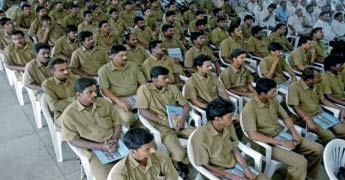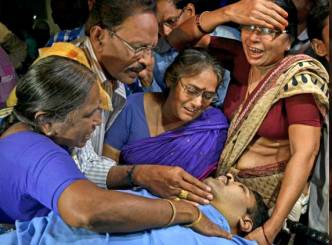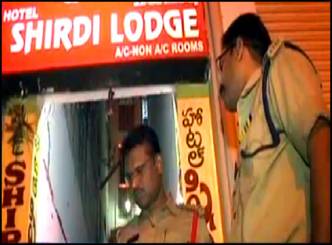
Owing to their nomadic lifestyle, truck drivers are often blamed for spreading HIV. Transport is a social  vector in the transmission of the virus and transport sector workers are twice as likely to acquire the ‘infection’. This is mainly because ‘high risk’ practices tend to be common along the roadways.
vector in the transmission of the virus and transport sector workers are twice as likely to acquire the ‘infection’. This is mainly because ‘high risk’ practices tend to be common along the roadways.
The ‘occupational hazard’ for truck drivers is costing dearly to the local truck industry. The mismatch between the dwindling number of people willing to take up the job of a truck driver and the growing needs of the truck industry is a matter of serious concern for lorry owners. Petrified by the element of ‘high risk’, families are preventing their kin from taking up these jobs. The wide space between the demand and supply of truckers has forced the industry to rely on drivers brought in from Bihar, Orissa, Haryana and West Bengal.
“Almost 20 per cent of the truck drivers are from other states. Though the series of awareness programmes taken up by the Krishna District Lorry Owners’ Association to educate truckers on the need to abstain from unsafe practices has helped to some extent, we have a long way to go before bridging the widening gap,” says Chennupati Vazeer, Chairman of the Krishna District Lorry Owners’ Mutually Aided Cooperative Society.
Mr. Vazeer attributes the crisis to a couple of other factors like improved opportunities in education sector for all sections and rise in per capita income. Ironically, the anti-child labour drive has also hit the truck industry in its own way, he says. Young boys engaged as cleaners accompany the driver and learn the nitty-gritty of the profession before graduating as drivers and taking over the wheels. “That is not the case any more as all children are sent to school now,” he explains.
The spurt in instance of HIV/AIDS among truckers throws up a fresh challenge. “We have nearly 4,000 children hit by the virus either directly or indirectly in Krishna district. They are a mix of ‘positive’ and ‘negative’ orphan children.”
Shifting focus to their welfare, Mr. Vazeer plans to launch an organisation on November 29. “Instead of looking to foreign funding agencies for aid, we want to concentrate on the local resources. We have many philanthropists around who are willing to contribute their mite for a good cause. Moreover, these children are our responsibility. We must take care of their needs and well being,” he says.
A membership fee of Rs. 10,000 would be charged to create a corpus and income earned from the principal amount will be used for charity. To begin with, Mr. Vazeer intends to reach out to 400-500 ‘affected’ children through his organisation. “I don’t want to confine activities of the organisation to a limited set of people. I want people from all walks of life to play a part in this endeavour,” he says.












